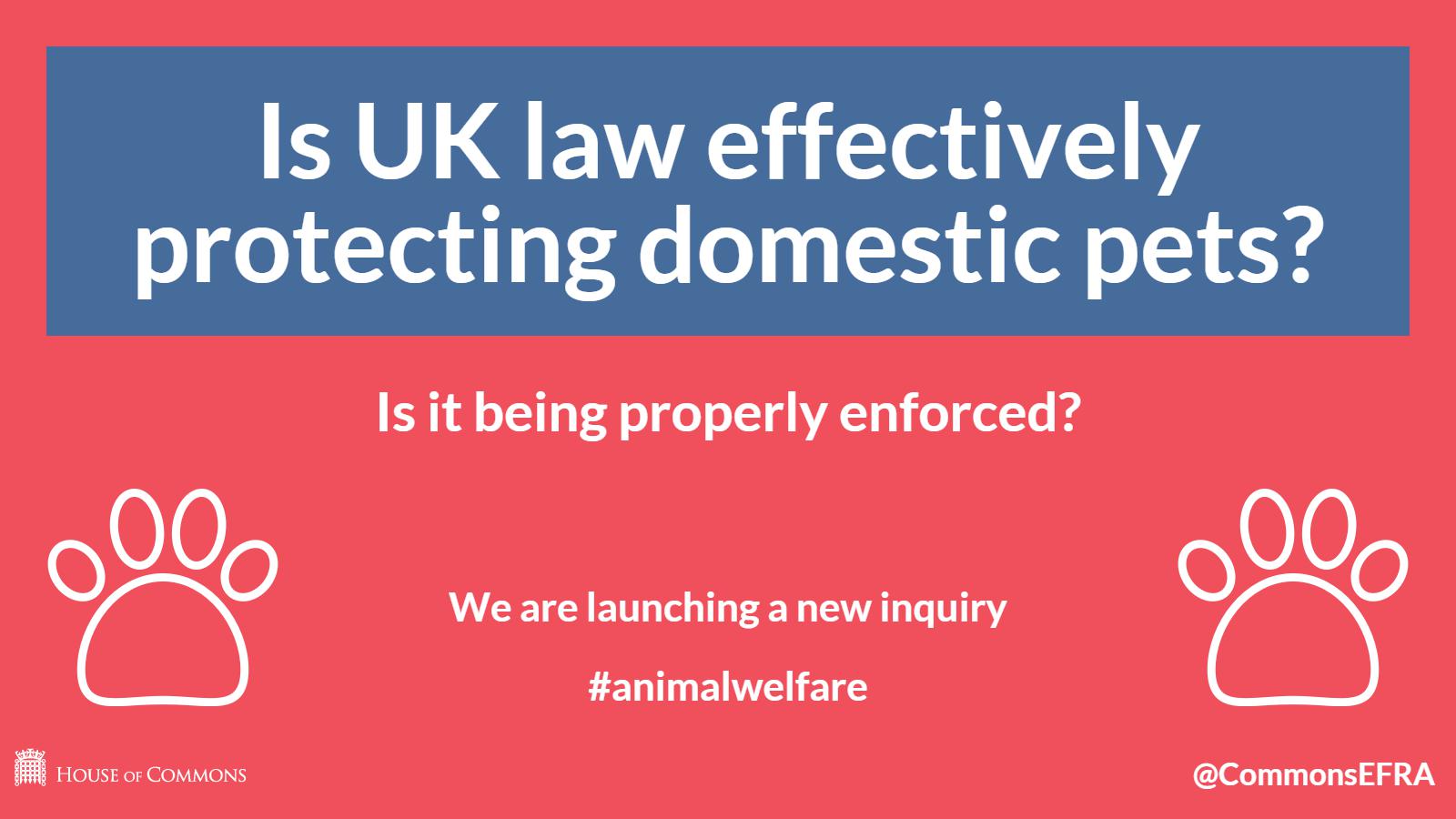The Environment, Food and Rural Affairs Sub-Committee will be holding a series of short inquiries on animal welfare over the course of this Parliament.
The first inquiry will focus on domestic pets, including cats, dogs and horses. The Committee will consider issues surrounding exotic pets at a later date.
In the UK, about 1 in 2 households own a pet with around 21 million pets owned (excluding fish). The UK pet population is estimated at nine million dogs, approximately 8 million cats. The Animal Welfare Act places a legal obligation on owners and keepers of animals to care for them properly.
The inquiry will examine the effectiveness of the Act and its enforcement with regards to domestic animals.
The inquiry will also examine whether that Act and other existing legislation remains fit for purpose in the age of the internet with regards to the sale of domestic pets.
The proposed terms for inquiry are:
- The effectiveness of the Animal Welfare Act 2006 with regard to domestic pets;
- Regulation surrounding the sale of domestic pets, including online sales and advertising;
- Enforcement of current animal welfare legislation, including prosecution of offences by the police, local authorities, the RSPCA and others:
- Comparative approaches to enforcement in England, Northern Ireland, Scotland and Wales.
The Committee asks for written submissions by noon on Thursday 17 March. Written submissions should be made via the Animal welfare: domestic pets inquiry page on the Environment, Food and Rural Affairs website.
As a guideline submissions should state clearly who the submission is from e.g. ‘Written evidence submitted by xxxx’ and be no longer than 1500 words, please contact the Committee staff if you wish to discuss this.
Submissions must be a self-contained memorandum in Word or Rich Text Format (not pdfs). Paragraphs should be numbered for ease of reference, and the document should, if possible, include an executive summary.
Submissions should be original work, not previously published or circulated elsewhere. Once submitted, your submission becomes the property of the Committee and no public use should be made of it unless you have first obtained permission from the Clerk of the Committee. Please bear in mind that Committees are not able to investigate individual cases.
The Committee normally, though not always, chooses to publish the written evidence it receives, either by publishing it on the internet or by making it publicly available through the Parliamentary Archives. If there is any information you believe to be sensitive you should highlight it and explain what harm you believe would result from its disclosure; the Committee will take this into account in deciding whether to publish or further disclose the evidence.
The personal information you supply will be processed in accordance with the provisions of the Data Protection Act 1998 for the purposes of attributing the evidence you submit and contacting you as necessary in connection with its processing. The Clerk of the House of Commons is the data controller for the purposes of the Act.

